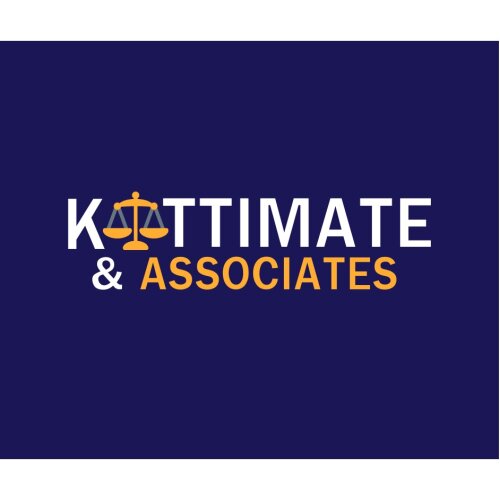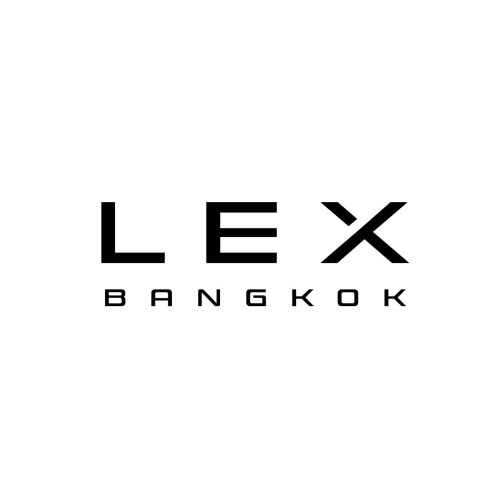ทนายความ เทคโนโลยีทางการเงิน ที่ดีที่สุดใน กรุงเทพมหานคร
แบ่งปันความต้องการของคุณกับเรา รับการติดต่อจากสำนักงานกฎหมาย
ฟรี ใช้เวลา 2 นาที
รายชื่อทนายความที่ดีที่สุดใน กรุงเทพมหานคร, ประเทศไทย
คู่มือกฎหมายเขียนโดย Mahanakorn Partners Group Co., Ltd:
- Thailand Strengthens Anti-Money Laundering Laws with New Amendments
- Recent Updates to Thailand’s Long-Term Resident (LTR) Visa and SMART Visa Programs
- Managing Risks in Public-Private Partnership Projects
1. เกี่ยวกับกฎหมายเทคโนโลยีทางการเงินในกรุงเทพมหานคร, ประเทศไทย
กรุงเทพมหานครปฏิบัติตามกรอบกฎหมาย FinTech ของประเทศทั้งสิ้น กฎหมายที่เกี่ยวข้องไม่ได้แบ่งแยกกรุงเทพฯ ออกเป็นพิเศษ แต่อาศัยกฎหมายระดับชาติที่บังคับใช้ทั่วประเทศ รวมถึงกรุงเทพมหานครด้วย
บทบาทหลักของหน่วยงานกำกับคือคุ้มครองผู้บริโภคและเสถียรภาพระบบการเงิน ธนาคารแห่งประเทศไทย (BOT) กำกับผู้ให้บริการชำระเงินและแพลตฟอร์มที่เกี่ยวข้อง ส่วน ก.ล.ต. (SEC) กำกับสินทรัพย์ดิจิทัลและตลาดทุน
กรอบข้อมูลส่วนบุคคลอยู่ภายใต้ PDPA เพื่อกำกับการเก็บ ใช้ และคุ้มครองข้อมูลส่วนบุคคลของผู้บริโภค FinTech ทั้งหมดในกรุงเทพฯ และทั่วประเทศ
“ข้อมูลส่วนบุคคลต้องได้รับการคุ้มครองตาม PDPA และผู้ควบคุมข้อมูลมีหน้าที่ดำเนินมาตรการด้านความปลอดภัย”
สรุปสาระสำคัญ แนวทางประสานงานระหว่าง BOT, SEC และ PDPA ช่วยให้ผู้ประกอบการ FinTech ในกรุงเทพฯ ปฏิบัติตามข้อกำหนดด้านการชำระเงิน สินทรัพย์ดิจิทัล และความเป็นส่วนตัวได้อย่างเหมาะสม
2. ทำไมคุณอาจต้องการทนายความ
เริ่มต้นธุรกิจ FinTech ในนครกรุงเทพฯ ต้องขอใบอนุญาตที่เกี่ยวข้อง เช่น ใบอนุญาตผู้ให้บริการชำระเงิน (PSP) หรือขออนุมัติจาก BOT ก่อนเปิดบริการในพื้นที่กรุงเทพฯ
ออกแบบสัญญาและนโยบายให้สอดคล้องกฎหมาย เพื่อคุ้มครองผู้บริโภคและลดความเสี่ยงทางการเงิน เช่น ข้อตกลงผู้ใช้ ความเป็นส่วนตัว และเงื่อนไขการคืนเงิน
เตรียมข้อตกลงการร่วมมือกับร้านค้าและคู่ค้าทางการเงิน ในกรุงเทพฯ เพื่อให้สอดคล้องกับข้อกำหนด KYC/AML และการกำกับดูแล
รับมือกับการตรวจสอบครบถ้วนจากหน่วยงานกำกับ เช่น กรณีถูกตรวจสอบโดย BOT หรือ ก.ล.ต. และต้องมีเอกสารที่ชัดเจน
วางแผนด้านภาษีและการปฏิบัติตาม PDPA เพื่อให้การดำเนินงานด้านข้อมูลส่วนบุคคลเป็นไปตามกฎหมายและบริหารความเสี่ยงได้ดี
ปรึกษากฎหมายล่วงหน้าเมื่อมีการระดมทุนหรือ ICO ในกรุงเทพฯ เพื่อให้สัญญาและเงื่อนไขการระดมทุนสอดคล้องกับข้อบังคับของ ก.ล.ต. และ ก.รม.การคลัง
3. ภาพรวมกฎหมายท้องถิ่น
Payment Services Act B.E. 2561 (2018) บังคับใช้กับผู้ให้บริการชำระเงิน กำหนดขอบเขตใบอนุญาต ปฏิบัติการ KYC และมาตรการ AML/CFT สำหรับผู้ให้บริการชำระเงินและแพลตฟอร์ม
พระราชบัญญัติคุ้มครองข้อมูลส่วนบุคคล พ.ศ. 2562 (PDPA) ปกป้องข้อมูลส่วนบุคคลของผู้ใช้งาน FinTech และกำหนดหน้าที่ผู้ควบคุมข้อมูล รวมถึงมาตรการความปลอดภัย
กรอบการกำกับสินทรัพย์ดิจิทัลโดย ก.ล.ต. กำกับแพลตฟอร์มซื้อขายสินทรัพย์ดิจิทัลและการนำเสนอสินทรัพย์ดิจิทัลแก่ประชาชน มีประกาศและข้อกำหนดในการขอใบอนุญาตและการปฏิบัติ
แนวคิดทางกฎหมายที่สำคัญ ได้แก่ การระบุผู้ควบคุมข้อมูล กรอบ KYC/AML และความรับผิดชอบต่อผู้บริโภคเมื่อเกิดเหตุละเมิดข้อมูลส่วนบุคคล
ความสำคัญในกรุงเทพฯ เนื่องจากกรุงเทพฯ เป็นศูนย์กลางธุรกิจ FinTech ประเทศไทย ความสอดคล้องกับข้อกำหนดเหล่านี้มีผลต่อการดำเนินงานและภาพลักษณ์องค์กร
4. คำถามที่พบบ่อย
อะไรคือบทบาทของทนายความด้านเทคโนโลยีทางการเงินในกรุงเทพมหานคร?
ทนายความช่วยให้คุณเข้าใจกฎหมายที่เกี่ยวกับ PSP สินทรัพย์ดิจิทัล และ PDPA ตั้งแต่การวางแผนธุรกิจจนถึงการยื่นขอใบอนุญาต และการทำสัญญากับพันธมิตร
อย่างไรฉันจะเริ่มต้นขอใบอนุญาต PSP ในกรุงเทพฯ ได้บ้าง?
คุณควรรวบรวมแผนธุรกิจ นโยบายความปลอดภัย ข้อมูลทางการเงิน และเอกสารบริษัท จากนั้นทนายจะช่วยเตรียมคำขอและยื่นต่อ BOT พร้อมคำชี้แจงความเสี่ยง
เมื่อไหร่กฎหมายด้านสินทรัพย์ดิจิทัลบังคับใช้ในประเทศไทยและ Bangkok?
กรอบสินทรัพย์ดิจิทัลถูกพัฒนาเป็นลำดับ โดย ก.ล.ต. ออกประกาศและข้อกำหนดตั้งแต่ปี 2564 และมีการผนวกข้อบังคับเพิ่มเติมในช่วงปีถัดมา
ที่ไหนฉันควรยื่นขอใบอนุญาตแพลตฟอร์มชำระเงิน?
การยื่นขอใบอนุญาต PSP ทำกับธนาคารแห่งประเทศไทยหรือหน่วยงานที่กำกับดูแลเกี่ยวข้องในกรุงเทพฯ ตามประเภทบริการ
ทำไม PDPA จึงสำคัญกับ FinTech ในกรุงเทพฯ?
PDPA ป้องกันข้อมูลลูกค้าและกำหนดกรอบการใช้งานข้อมูล ผู้ประกอบการต้องมีมาตรการด้านเทคนิคและองค์กรที่เหมาะสม
สามารถให้บริการลูกค้าต่างประเทศจากกรุงเทพฯ ได้อย่างไรบ้าง?
ต้องมีการกำกับดูแล KYC/AML และการคุ้มครองข้อมูลส่วนบุคคลตาม PDPA พร้อมข้อกำหนดที่เกี่ยวข้องกับการถ่ายโอนข้อมูลระหว่างประเทศ
ควรเตรียมสัญญาอย่างไรเมื่อร่วมมือกับร้านค้าในกรุงเทพฯ?
สัญญาควรระบุสิทธิ์และภาระหน้าที่ของแต่ละฝ่าย ความรับผิดทางกฎหมาย วิธีการชำระเงิน และเงื่อนไขการยกเลิก รวมถึงการคุ้มครองข้อมูล
ค่าใช้จ่ายในการจ้างทนายความ FinTech เป็นอย่างไรบ้าง?
ค่าบริการขึ้นกับขอบเขตงาน เช่น การตรวจสอบความสอดคล้อง การเตรียมเอกสาร และการติดตามขอใบอนุญาต ปกติเป็นแบบเหมาจ่ายหรือตามชั่วโมง
ระยะเวลาในการขอใบอนุญาต PSP หรือสินทรัพย์ดิจิทัลคือประมาณเท่าไร?
ระยะเวลาขึ้นกับความครบถ้วนของเอกสารและความซับซ้อนของธุรกิจ ปกติอยู่ในช่วงหลายเดือนถึงปี โดยมีช่วงประเมินจากหน่วยงานกำกับ
คุณสมบัติที่ทนายความต้องมีเพื่อให้คำปรึกษา FinTech ในกรุงเทพฯ?
ทนายความควรมีความเข้าใจลึกซึ้งในกฎหมายการชำระเงิน สินทรัพย์ดิจิทัล และ PDPA พร้อมประสบการณ์ในโครงสร้างสัญญากับผู้ให้บริการ
การเปรียบเทียบระหว่างทนายความท้องถิ่นกับผู้ให้บริการกฎหมายต่างประเทศคืออะไร?
ทนาย local เข้าใจบริบทกรุงเทพฯ สภาพตลาดและขั้นตอนขอใบอนุญาตท้องถิ่นได้ดีกว่า ส่วนผู้ให้บริการต่างประเทศอาจมีความเชี่ยวชาญด้านมาตรฐานนานาชาติ แต่ต้องปรับให้สอดคล้องกับกฎหมายไทย
รูปแบบการทำงานร่วมกับทนายความเพื่อ FinTech ในกรุงเทพฯ เป็นอย่างไร?
ส่วนใหญ่เริ่มจากการประเมินความสอดคล้องและความเสี่ยง แล้วจัดทำเอกสาร ปฏิบัติตามข้อเสนอแนะ และติดตามการอัปเดตกฎหมายอย่างต่อเนื่อง
5. ทรัพยากรเพิ่มเติม
- ธนาคารแห่งประเทศไทย (BOT) เว็บไซต์ข้อมูลนโยบายและข้อกำกับที่เกี่ยวข้องกับการชำระเงินและ PSP ไปจนถึงแนวทางปฏิบัติ
- สำนักงานคณะกรรมการกำกับหลักทรัพย์และตลาดหลักทรัพย์ (SEC) แพลตฟอร์มสินทรัพย์ดิจิทัล และกรอบการขออนุญาต
- สำนักงานคุ้มครองข้อมูลส่วนบุคคล (PDPA) แนวทางการคุ้มครองข้อมูลส่วนบุคคล และหน้าที่ของผู้ควบคุมข้อมูล
แหล่งข้อมูลอ้างอิงที่เป็นทางการ มีดังนี้
“PDPA กำกับการเก็บ ใช้ และเปิดเผยข้อมูลส่วนบุคคลอย่างเป็นระบบ เพื่อคุ้มครองสิทธิของบุคคล”
6. ขั้นตอนถัดไป
- ระบุกลุ่มธุรกิจ FinTech ที่จะทำในกรุงเทพฯ และประเมินความเสี่ยงด้านกฎหมาย
- ตรวจสอบความสอดคล้องกับ Payment Services Act และ PDPA ด้วยตนเองก่อนพบทนาย
- ปรึกษาทนายความด้าน FinTech เพื่อวางแผนโครงสร้างธุรกิจและขอใบอนุญาต
- รวบรวมเอกสารสำคัญ เช่น หนังสือรับรองบริษัท หลักฐานทุน และนโยบายความปลอดภัย
- ยื่นขอใบอนุญาต PSP หรือใบอนุญาตสินทรัพย์ดิจิทัลกับหน่วยงานที่เกี่ยวข้อง
- จัดทำสัญญากับลูกค้าและคู่ค้าตามข้อกำหนดของกฎหมายไทย
- ติดตามข่าวการเปลี่ยนแปลงกฎหมายและปรับแนวปฏิบัติอย่างต่อเนื่อง
Lawzana ช่วยคุณค้นหาทนายความและสำนักงานกฎหมายที่ดีที่สุด ใน กรุงเทพมหานคร ผ่านรายชื่อผู้เชี่ยวชาญด้านกฎหมายที่มีคุณสมบัติเหมาะสมที่คัดสรรและตรวจสอบล่วงหน้า แพลตฟอร์มของเรานำเสนอการจัดอันดับและโปรไฟล์โดยละเอียดของทนายความและสำนักงานกฎหมาย ช่วยให้คุณเปรียบเทียบตามสาขากฎหมาย รวมถึง เทคโนโลยีทางการเงิน ประสบการณ์ และความคิดเห็นของลูกค้า
แต่ละโปรไฟล์ประกอบด้วยคำอธิบายเกี่ยวกับสาขากฎหมายของสำนักงาน รีวิวจากลูกค้า สมาชิกในทีมและหุ้นส่วน ปีที่ก่อตั้ง ภาษาที่พูด ที่ตั้งสำนักงาน ข้อมูลการติดต่อ การมีตัวตนบนโซเชียลมีเดีย และบทความหรือแหล่งข้อมูลที่เผยแพร่ สำนักงานส่วนใหญ่บนแพลตฟอร์มของเราพูดภาษาอังกฤษและมีประสบการณ์ทั้งในเรื่องกฎหมายท้องถิ่นและระหว่างประเทศ
ขอใบเสนอราคาจากสำนักงานกฎหมายชั้นนำ ใน กรุงเทพมหานคร, ประเทศไทย — รวดเร็ว ปลอดภัย และไม่ยุ่งยาก
ข้อจำกัดความรับผิดชอบ:
ข้อมูลที่ให้ไว้ในหน้านี้มีวัตถุประสงค์เพื่อเป็นข้อมูลทั่วไปเท่านั้นและไม่ถือเป็นคำแนะนำทางกฎหมาย แม้ว่าเราจะพยายามตรวจสอบความถูกต้องและความเกี่ยวข้องของเนื้อหา แต่ข้อมูลทางกฎหมายอาจเปลี่ยนแปลงได้ตามกาลเวลา และการตีความกฎหมายอาจแตกต่างกันไป คุณควรปรึกษาผู้เชี่ยวชาญด้านกฎหมายที่มีคุณสมบัติเหมาะสมเพื่อขอคำแนะนำเฉพาะสำหรับสถานการณ์ของคุณเสมอ
เราปฏิเสธความรับผิดทั้งหมดสำหรับการกระทำที่ทำหรือไม่ทำตามเนื้อหาในหน้านี้ หากคุณเชื่อว่าข้อมูลใดไม่ถูกต้องหรือล้าสมัย โปรด contact us และเราจะตรวจสอบและแก้ไขตามความเหมาะสม















